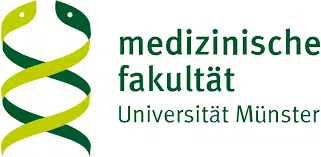Research Area B
Testis development and fertility preservation
While infertility is a pivotal side effect of oncological treatment, cryopreservation of sperm prior to gonadotoxic treatments is well-established to preserve male fertility. This is not suitable for pre-pubertal boys, however. Cryopreserving immature testicular tissue containing spermatogonia is a promising alternative, yet this treatment remains experimental, so far only established in animal models. Besides, too little is known about the impact of gonadotoxic treatments on spermatogenesis. This research area aims to overcome these issues by utilising primates as powerful model to develop protocols and generate sperm from spermatogonia. Moreover, it will uncover the cellular and molecular impact of radiation-based treatment regimens on testicular tissues.
Research
projects
- In a project co-supervised by Alexander Busch (MD, PhD) and Stefan Schlatt (PhD), a Medical Scientist will study the endocrine control of early human testicular development and in vitro culture of immature testis tissues. Specifically, the mechanisms of minipuberty and puberty will be uncovered analysing endocrine and molecular parameters. For this, CeRA’s (Centre of Reproductive Medicine and Andrology) marmoset monkey colony will be used, providing access to testicular tissues from defined developmental stages. Systematic analyses in blood, the central nervous system, and testes are combined with ultra-high content antibody imaging and multifactorial flow cytometricapproaches as well as single cell RNA-Seq. Furthermore, bioinformatic analyses of the derived datasets and training in relevant algorithms will be provided by Sarah Sandmann (PhD).
- A Medical Scientist co-supervised by Nina Neuhaus (PhD), Hans Eich (MD), and Sarah Sandmann (PhD) will study the effects of radiation therapy on human testicular tissues. Throughout the course of the project, the MS combines 3D in vitro test systems with ultra-high content antibody imaging, scRNA-Seq analyses, and bioinformatics tools to analyse testicular tissues both before and after oncological treatment. The junior scientist will receive training in bioinformatic tools and assessment of the transcriptional alterations caused by radiation as well as training on clinically applied radiation therapy and cellular and molecular aspects of human spermatogenesis.



